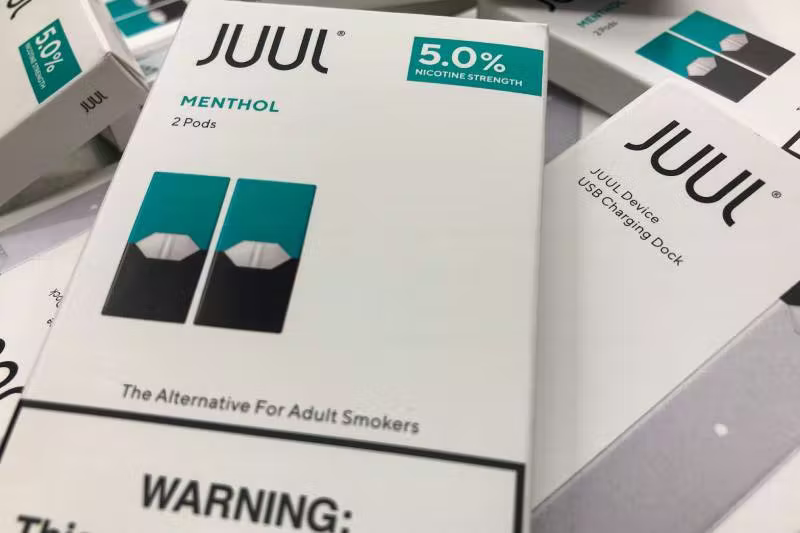
Juul Labs has engaged in discussions with at least three major tobacco companies in an attempt to work out an arrangement that would revitalize the cash-strapped vape manufacturer. The talks are still in early stages.
Juul has spoken with Philip Morris International (PMI), Japan Tobacco Group and Altria Group, seeking a possible sale of the company, a major investment, or a licensing or distribution arrangement, according to the Wall Street Journal.
Why buy Juul now?
It’s unclear if potential partners are interested in buying Juul outright, but some kind of partnership makes sense for all of them. Even purchasing Juul—which means taking on all of the company’s liabilities and reputational problems—could make sense now. Juul has never been weaker and more in need of a savior.
PMI has recently entered the American market, buying snus and nicotine pouch manufacturer Swedish Match. The company also plans to sell its IQOS heated tobacco product (HTP) in the U.S., but has no vaping products authorized for sale here. The process of submitting a premarket tobacco application (PMTA) for a vaping device and seeing it through to FDA authorization can take years.
Unlike Japan Tobacco and Altria, the U.S. division of PMI will not sell cigarettes or other combustible tobacco products. Juul could be a valuable addition for a tobacco company dedicated to a smoke-free future.
Japan Tobacco owns vape brand Logic, which produces two FDA-authorized vaping products, but they have had little success in the market compared to Juul. Logic is also facing a court battle with the FDA to keep its menthol-flavored refills available.
Altria already owns 35 percent of Juul Labs, but has recently written the value of its investment down from $12.8 billion to $1 billion. The Marlboro manufacturer also ended its non-compete agreement with Juul, leaving Altria free to buy another vaping company or develop vape products of its own. The Journal also reported that Juul and Altria engaged in talks about a possible licensing agreement last summer.
Juul’s expenses mount as its market strength declines
Juul Labs recently settled thousands of lawsuits by individuals, municipalities, school districts and American Indian tribes for a reported $1.7 billion. Just months earlier, the company agreed to pay over $400 million to settle lawsuits by 33 states.
To cover the cost of those settlements, Juul received additional equity investments from current investors, and cut costs drastically, eliminating a third of its workforce. Juul had considered chapter 11 bankruptcy last fall, before it got the emergency investments.
In the last two years, Juul has lost its position as the top convenience store e-cigarette, facing increased competition from the market leader, R.J. Reynolds’ Vuse Alto, and from hundreds of disposable vaping products. Since 2018, Juul’s share of the c-store/gas station vape market segment has dropped from over 70 to under 30 percent.
Juul is also engaged in a battle with the FDA Center for Tobacco Products, which last June issued a marketing denial order (MDO) to Juul, ordering its products off the market. The MDO was immediately stayed by a federal court, and the FDA eventually agreed to reconsider the order, but Juul faces a long and difficult struggle to get marketing authorization from the agency.
